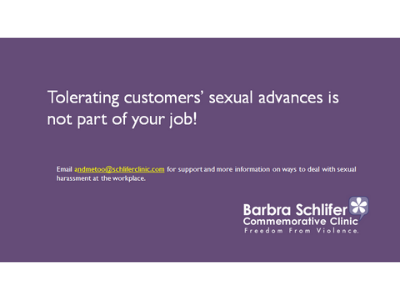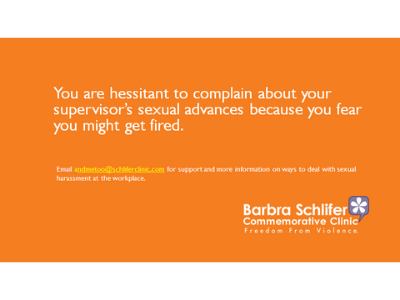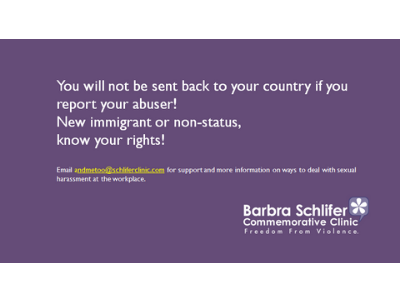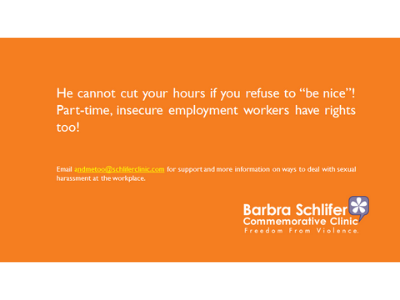AndMeToo




#AndMeToo levels the ground for survivors from complex socio-economic backgrounds to voice their concerns and seek advice.
With its re-appearance as a hashtag in October 2017, #MeToo encouraged thousands of women and gender diverse people around the world to start sharing their experiences of sexual assault and sexual harassment. This social media initiative turned into a movement producing waves of change for survivors, social service providers, educators, law enforcement officers, and government. However, due to lack of resources and access to legal representation women and gender diverse people with complex socio-economic needs are far less likely to voice similar concerns.
Promoting Social and Systems Change
The #AndMeToo Project advocates for the most marginalized women and gender diverse people in Canada, who are unable to cope with the social and economic costs of defending their rights in situations of harassment, sexualized violence, or economic coercion at work. By means of legislative advocacy, legal reform, and test case legislation we drive towards increased awareness of the problem among the legal profession and seek to mobilize sectors of industry that are resistant to organizing.
Main Objective
The #AndMeToo Project increases access to justice for women and gender diverse people of precarious status and/or employment who have experienced sexual assault or sexual harassment in their workplaces. Through this project, the Clinic provides women and gender diverse people with access to summary legal advice, brief services and appropriate referrals to services in:
- Employment law
- Human Rights
- Criminal law
- Immigration
- Income security
- Criminal Injuries Compensation
Who is it for?
#AndMeToo is for people who identify as women, trans women, gender non-conforming and non-binary survivors of sexual violence or sexual harassment in the workplace, particularly those facing multiple forms of discrimination, who come from under-served communities, and who have complex socio-economic and legal needs, including:
- Non-status & immigrant women
- Survivors of gendered economic coercion including human trafficking
- Black women
- Indigenous women
- HIV+ women
- Women living with disabilities
- Women with overlapping child custody, immigration, housing and employment needs
This program is for workers who are precariously employed. Precarious employment includes:
- Being paid in cash
- Workers with employer-specific work permits
- Working for a temporary agency
- Working seasonally or casually
- Working on a term or contract
- Self-employed or independent contracting
- Working multiple jobs
- Working part-time
- Working for low wages
- Unemployment
- Working as a student or a volunteer
To get involved in the program, please contact us.
Be part of the conversation on Twitter: @schliferclinic#AndMeToo
